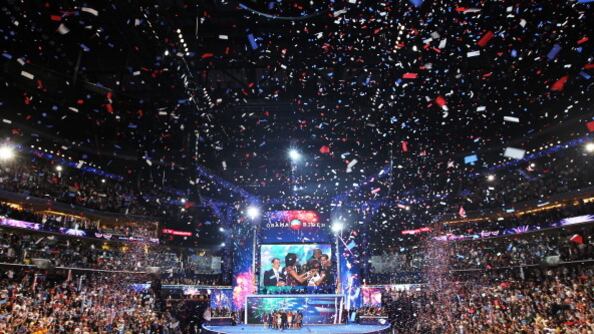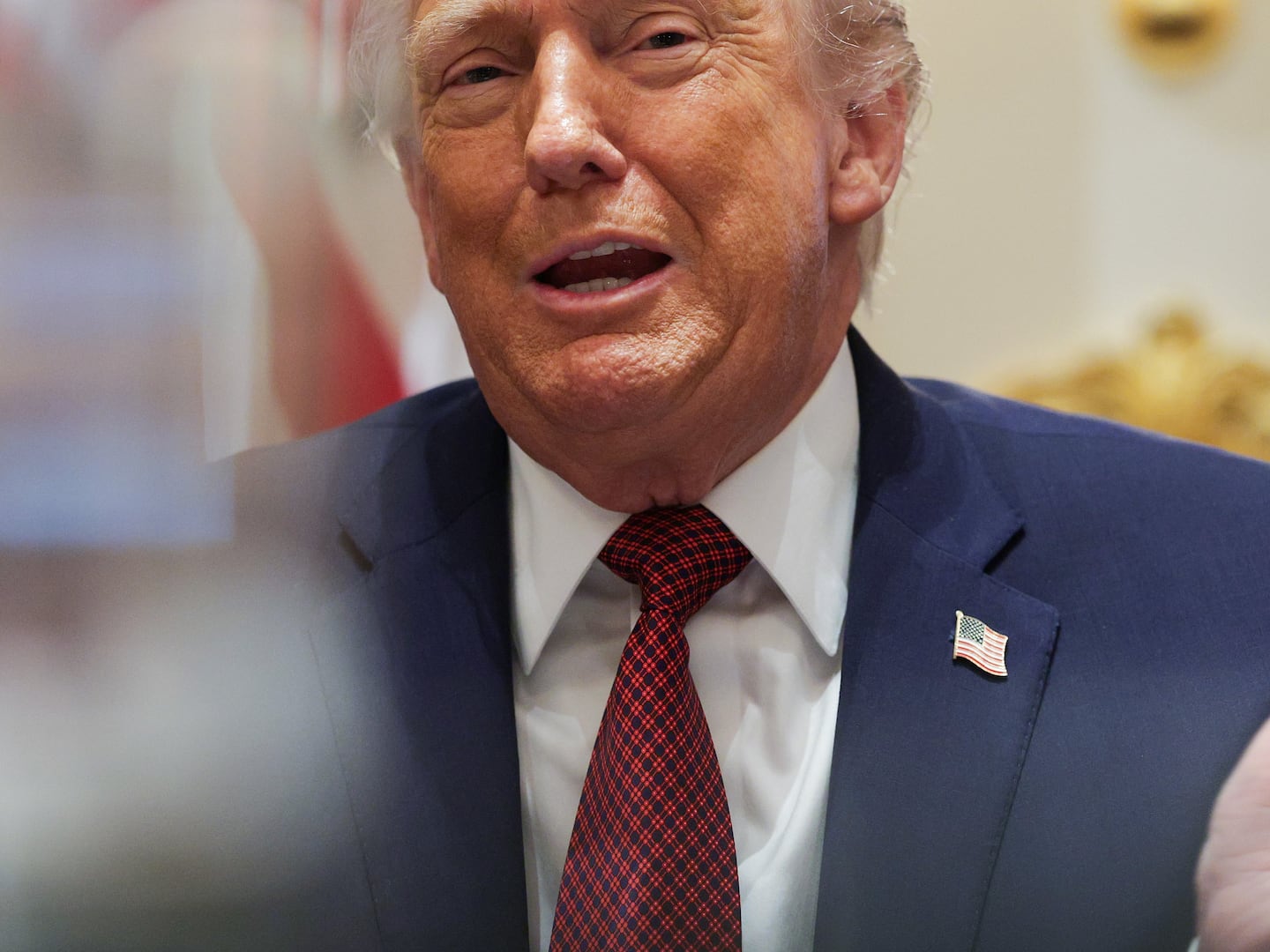Alex Yudelson is proud that he booed the Jerusalem amendment to the Democratic platform. I too was a delegate in Charlotte, but I am proud that the Democratic party ratified the Jerusalem amendment.
U.S. policy for decades—under Democratic and Republican administrations alike—has been that Jerusalem is a final status issue to be resolved by the parties to the conflict. That’s why George W. Bush broke his campaign promise to move the U.S. embassy to Jerusalem, and that’s why neither President Obama nor Mitt Romney will move the embassy to Jerusalem.

But that doesn’t mean that we as Democrats should not reaffirm our party’s commitment to Jerusalem as the undivided capital of Israel. Obama correctly insisted that the platform include language on Jerusalem. While Romney runs from his party’s platform when it is politically expedient, Obama stands behind his party’s platform.
The original platform language was very strong on Israel and contained nothing objectionable, which is why everyone was initially comfortable with it. But when President Obama saw that Republicans were attempting to misrepresent the significance of missing references to Jerusalem, he insisted on changing the platform.
Party platforms cannot cover every issue. A comprehensive statement of Middle East policy would be longer than the entire current platform. That’s why the "look what’s not there" game is such an easy game to play. The omission of Jerusalem was never intended to signal a policy shift within the Democratic Party, which is why President Obama’s decision to add the language was such an easy call. Why Democrats who reviewed the platform never realized that the omission of Jerusalem would give the Republicans a chance to play politics with Israel remains a mystery to me. What matters is that the Democrats responded quickly—exactly as one would expect a pro-Israel party to respond.
When Republicans attempted yet again to use Israel as a wedge issue to divide our nation, the solution seemed obvious: Remove all doubt by adding language to the already staunchly pro-Israel platform. Republicans do not strengthen the U.S.-Israel relationship by falsely claiming that one party has changed its position on Jerusalem. The Republicans omitted language from their platform about an "undivided" Jerusalem and about moving the embassy to Jerusalem, but that does not mean the Republicans have changed their position (although Romney has yet to clarify those points).
Yudelson complained that the Jerusalem language does nothing to help the peace process, and could even harm it. But the peace process needs to be based in reality. The Jewish people have a 3,000 year-old commitment to Jerusalem. Just as we all know that the borders of a Palestinian state will be based on the 1967 lines with mutually agreed land swaps, we also know that Jerusalem is and will be the capital of Israel. Saying so on the record sends a signal that Palestinian attempts to deny the Jewish connection to Jerusalem cannot succeed and that negotiations must take place in the context of a shared reality. Ignoring this reality only encourages Palestinian extremism.
The difference between the Democratic and Republican platforms on Jerusalem and the refusal of Democratic and Republican presidents to recognize Jerusalem as Israel’s capital is the difference between policy and diplomacy. As allies of Israel, we support Israel’s right to determine its capital, just as other countries have the right to choose their capitals. But U.S. policy is that because Jerusalem is a final status issue, the U.S. should not take any action that would prejudice the outcome of final status talks. A two-state solution might include a divided Jerusalem (a Jerusalem whose boundaries might be enlarged to facilitate such a division), but a two-state solution could also include an undivided Jerusalem with shared sovereignty in certain areas.
My preference is for an undivided Jerusalem. If the U.S. cannot express such a preference, we as Democrats certainly can through our platform, which is a legally non-binding document and thus the perfect vehicle to for us to re-affirm our commitment to Jerusalem as Israel’s undivided capital.
Yes, Yudelson and some others booed. But many delegates were not even in the arena at 5:00 pm when the vote was taken, and some guests in unreserved seats—who don’t serve as delegates—may have taken their seats already. Most of the Illinois delegation, which I served on, was at dinner at the time. Furthermore, some of those who booed were upset about the lack of notice, some were upset about the “under God” language, and a few, like Yudelson, were upset about Jerusalem.
But when President Obama reiterated his strong support for Israel on Thursday night to a packed house, there were only cheers. I did not hear one boo. One need only look to the overwhelming support for Israel shown by Democratic members of Congress to see how uncontroversial this language is among Democrats.
The Democratic Party did not succumb to pressure from the right. Progressive, pro-Israel delegates like me wanted language about Jerusalem in the platform and our President agreed. The Democratic Party is not even-handed when it comes to the Israeli-Palestinian conflict.
Yudelson ended his article by quoting Debbie Wasserman Schultz, the Chair of the Democratic National Committee, who recently said that "there has never been and never will be daylight between the two parties" when it comes to Israel. Yudelson sees that as a problem. The Republican Party has its Rand Pauls and Ron Pauls and John Sununus and Fred Maleks. We have people like Yudelson who do not hold office and do not make policy. Nevertheless, the leadership of both parties remains strongly pro-Israel.
There are major differences between the parties, but the platforms of both parties—even before the Jerusalem amendment—reaffirms that Israel is not one of those differences. That’s a cause for cheering, not booing.






